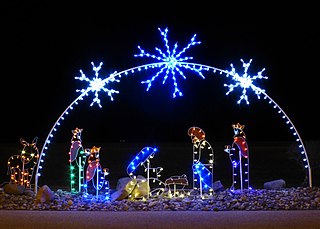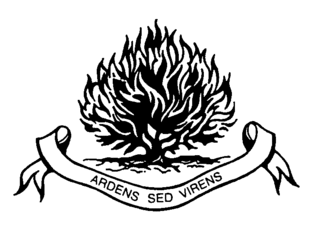
The Anglican Communion is the third largest Christian communion after the Roman Catholic and Eastern Orthodox churches. Founded in 1867 in London, the communion has more than 85 million members within the Church of England and other autocephalous national and regional churches in full communion. The traditional origins of Anglican doctrine are summarised in the Thirty-nine Articles (1571). The Archbishop of Canterbury in England acts as a focus of unity, recognised as primus inter pares, but does not exercise authority in Anglican provinces outside of the Church of England. Most, but not all, member churches of the communion are the historic national or regional Anglican churches.

Anglicanism is a Western Christian tradition that has developed from the practices, liturgy, and identity of the Church of England following the English Reformation, in the context of the Protestant Reformation in Europe. It is one of the largest branches of Christianity, with around 110 million adherents worldwide as of 2001.

The Bible is a collection of religious texts, writings, or scriptures sacred in Christianity, Judaism, Samaritanism, Islam, Rastafari, and many other faiths. It appears in the form of an anthology, a compilation of texts of a variety of forms that are all linked by the belief that they are collectively revelations of God. These texts include theologically-focused historical accounts, hymns, prayers, proverbs, parables, didactic letters, admonitions, essays, poetry, and prophecies. Believers also generally consider the Bible to be a product of divine inspiration.

Christianity is an Abrahamic, monotheistic religion based on the life and teachings of Jesus of Nazareth. It is the world's largest religion, with about 2.5 billion followers. Its adherents, known as Christians, make up a majority of the population in 157 countries and territories, and believe that Jesus is the Christ, whose coming as the Messiah was prophesied in the Hebrew Bible and chronicled in the New Testament.

The Church of Jesus Christ of Latter-day Saints, often informally known as the LDS Church or Mormon Church, is a nontrinitarian, Christian restorationist church that considers itself to be the restoration of the original church founded by Jesus Christ. The church is headquartered in the United States in Salt Lake City, Utah, and has established congregations and built temples worldwide. According to the church, it has over 16.6 million members and 51,000 full-time volunteer missionaries. The church is the fourth-largest Christian denomination in the United States, with over 6.7 million members as of 2021. It is the largest denomination in the Latter Day Saint movement founded by Joseph Smith during the early 19th-century period of religious revival known as the Second Great Awakening.

The Church of England is a Christian church which is the established church of England. The archbishop of Canterbury is the most senior cleric, although the monarch is the supreme governor. The Church of England is also the mother church of the international Anglican Communion. It traces its history to the Christian church recorded as existing in the Roman province of Britain by the 3rd century, and to the 6th-century Gregorian mission to Kent led by Augustine of Canterbury.

Christmas is an annual festival commemorating the birth of Jesus Christ, observed primarily on December 25 as a religious and cultural celebration among billions of people around the world. A feast central to the Christian liturgical year, it is preceded by the season of Advent or the Nativity Fast and initiates the season of Christmastide, which historically in the West lasts twelve days and culminates on Twelfth Night. Christmas Day is a public holiday in many countries, is celebrated religiously by a majority of Christians, as well as culturally by many non-Christians, and forms an integral part of the holiday season organized around it.

The Eastern Orthodox Church, also called the Orthodox Church, is the second-largest Christian church, with approximately 220 million baptised members. It operates as a communion of autocephalous churches, each governed by its bishops in local synods. The church has no central doctrinal or governmental authority analogous to the Bishop of Rome (Pope), but the Ecumenical Patriarch of Constantinople is recognised by all bishops as primus inter pares and regarded as the representative and spiritual leader of Eastern Orthodox Christians. As one of the oldest surviving religious institutions in the world, the Eastern Orthodox Church has played a prominent role in the history and culture of Eastern and Southeastern Europe, the Caucasus, and the Near East. The Eastern Orthodox Church officially calls itself the Orthodox Catholic Church.

Mormons are a religious and cultural group related to Mormonism, the principal branch of the Latter Day Saint movement started by Joseph Smith in upstate New York during the 1820s. After Smith's death in 1844 the movement split into several groups following different leaders; the majority followed Brigham Young, while smaller groups followed Joseph Smith III, Sidney Rigdon, and James Strang. Most of these smaller groups eventually coalesced into the Community of Christ, and the term Mormon typically refers to members of The Church of Jesus Christ of Latter-day Saints, as today this branch is far larger than all the others combined. People who identify as Mormons may also be independently religious, secular and non-practicing, or belong to other denominations.

Methodism, also called the Methodist movement, is a group of historically related denominations of Protestant Christianity which derive their doctrine of practice and belief from the life and teachings of John Wesley. George Whitefield and John's brother Charles Wesley were also significant early leaders in the movement. They were named Methodists for "the methodical way in which they carried out their Christian faith". Methodism originated as a revival movement within the 18th-century Church of England and became a separate denomination after Wesley's death. The movement spread throughout the British Empire, the United States, and beyond because of vigorous missionary work, today claiming approximately 80 million adherents worldwide.

The pope, also known as supreme pontiff, Roman pontiff or sovereign pontiff, is the bishop of Rome, head of the worldwide Catholic Church, and head of state or sovereign of the Vatican City State. According to Catholics, the primacy of the bishop of Rome is largely derived from his role as the apostolic successor to Saint Peter, to whom primacy was conferred by Jesus, giving him the Keys of Heaven and the powers of "binding and loosing", naming him as the "rock" upon which the Church would be built. The current pope is Francis, who was elected on 13 March 2013.

Presbyterianism is a part of the Reformed tradition within Protestantism that traces its origin to the Church of Scotland.

The Seventh-day Adventist Church is a Protestant Christian denomination which is distinguished by its observance of Saturday, the seventh day of the week in Christian (Gregorian) and the Hebrew calendar, as the Sabbath, and its emphasis on the imminent Second Coming (advent) of Jesus Christ. The denomination grew out of the Millerite movement in the United States during the mid-19th century and it was formally established in 1863. Among its co-founders was Ellen G. White, whose extensive writings are still held in high regard by the church. Much of the theology of the Seventh-day Adventist Church corresponds to common evangelical Christian teachings, such as the Trinity and the infallibility of Scripture. Distinctive post-tribulation teachings include the unconscious state of the dead and the doctrine of an investigative judgment. The church is known for its emphasis on diet and health, including adhering to Kosher food laws, advocating vegetarianism, and its holistic understanding of the person. It is likewise known for its promotion of religious liberty, and its conservative principles and lifestyle.

The Catholic Church, also known as the Roman Catholic Church, is the largest Christian church, with 1.3 billion baptised Catholics worldwide as of 2019. As the world's oldest and largest continuously functioning international institution, it has played a prominent role in the history and development of Western civilisation. The church consists of 24 particular churches and almost 3,500 dioceses and eparchies around the world. The pope, who is the Bishop of Rome, is the chief pastor of the church. The bishopric of Rome, known as the Holy See, is the central governing authority of the church. The administrative body of the Holy See, the Roman Curia, has its principal offices in Vatican City, a small enclave of Rome, of which the pope is head of state.

Epiphany, also known as Theophany in the east, is a Christian feast day that celebrates the revelation (theophany) of God incarnate as Jesus Christ.

The Episcopal Church (TEC), based in the United States with additional dioceses elsewhere, is a member church of the worldwide Anglican Communion. It is a mainline Protestant denomination and is divided into nine provinces. The presiding bishop of the Episcopal Church is Michael Bruce Curry, the first African-American bishop to serve in that position.

Lutheranism is one of the largest branches of Protestantism that identifies with the teachings of Jesus Christ and was founded by Martin Luther, a 16th-century German monk and reformer whose efforts to reform the theology and practice of the Catholic church launched the Protestant Reformation. The reaction of the government and church authorities to the international spread of his writings, beginning with the 95 Theses, divided Western Christianity. During the Reformation, Lutheranism became the state religion of numerous states of northern Europe, especially in northern Germany, Scandinavia and the then Livonian Order. Lutheran clergy became civil servants and the Lutheran churches became part of the state.

Protestantism is a form of Christianity that originated with the 16th-century Reformation, a movement against what its followers perceived to be errors in the Catholic Church. Protestants originating in the Reformation reject the Roman Catholic doctrine of papal supremacy, but disagree among themselves regarding the number of sacraments, the real presence of Christ in the Eucharist, and matters of ecclesiastical polity and apostolic succession. They emphasize the priesthood of all believers; justification by faith alone rather than by faith with good works; the teaching that salvation comes by divine grace or "unmerited favor" only, not as something merited ; and either affirm the Bible as being the sole highest authority or primary authority for Christian doctrine, rather than being on parity with sacred tradition. The five solae of Lutheran and Reformed Christianity summarise basic theological differences in opposition to the Catholic Church.

Saint Peter, also known as Simon Peter, Simeon, Simon, Cephas, or Peter the Apostle, was one of the Twelve Apostles of Jesus Christ, and one of the first leaders of the early Church.

Stephen, traditionally venerated as the protomartyr or first martyr of Christianity, was, according to the Acts of the Apostles, a deacon in the early Church at Jerusalem who angered members of various synagogues by his teachings. Accused of blasphemy at his trial, he made a speech denouncing the Jewish authorities who were sitting in judgment on him and was then stoned to death. Saul of Tarsus, later known as Paul, a Pharisee and Roman citizen who would later become a Christian apostle, participated in Stephen's martyrdom.

























